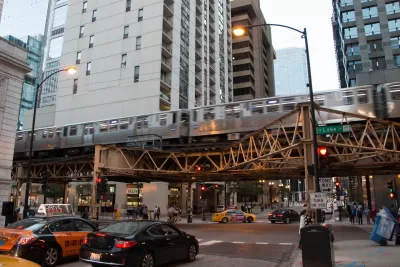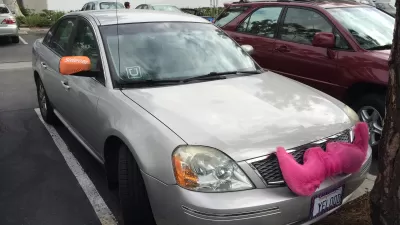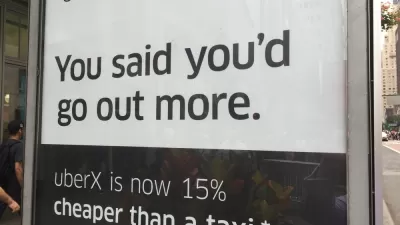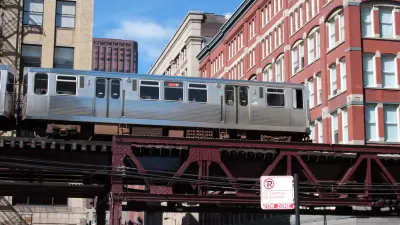A new report looks at how the increase of ride-hailing in Chicago is affecting infrastructure and mobility.

The city of Chicago has released a new report on ride-hailing trends and congestion impacts. "Between 2015 and 2018, the annual number of ride-hail trips in Chicago grew by 271 percent and the miles traveled by passengers increased by 344 percent. The study found that half of all trips citywide begin or end downtown, and nearly a third of those trips both start and end in the downtown area," reports Lynda Lopez.
The increase in vehicle miles is contributing to congestion, along with more roadway wear and tear and rising levels of greenhouse gas emissions, says Lopez. "The growing popularity of ride-hailing is also having a negative impact on public transportation. A 2018 CTA ridership survey indicated that 48 percent of ride-hailing customers would have taken the CTA if [transportation network providers] did not exist."
Lopez notes that the report’s findings point to policy recommendations that will lead to higher taxes on ride-hailing and encourage both shared trips and public transit use. "Higher fees are one step to ease the impact of ride-hailing on our streets, but ambitious proposals to boosting public transit ridership has to accompany them."
FULL STORY: City’s ride-hailing report quantifies the damage Uber and Lyft are doing to Chicago

Planetizen Federal Action Tracker
A weekly monitor of how Trump’s orders and actions are impacting planners and planning in America.

Chicago’s Ghost Rails
Just beneath the surface of the modern city lie the remnants of its expansive early 20th-century streetcar system.

San Antonio and Austin are Fusing Into one Massive Megaregion
The region spanning the two central Texas cities is growing fast, posing challenges for local infrastructure and water supplies.

Since Zion's Shuttles Went Electric “The Smog is Gone”
Visitors to Zion National Park can enjoy the canyon via the nation’s first fully electric park shuttle system.

Trump Distributing DOT Safety Funds at 1/10 Rate of Biden
Funds for Safe Streets and other transportation safety and equity programs are being held up by administrative reviews and conflicts with the Trump administration’s priorities.

German Cities Subsidize Taxis for Women Amid Wave of Violence
Free or low-cost taxi rides can help women navigate cities more safely, but critics say the programs don't address the root causes of violence against women.
Urban Design for Planners 1: Software Tools
This six-course series explores essential urban design concepts using open source software and equips planners with the tools they need to participate fully in the urban design process.
Planning for Universal Design
Learn the tools for implementing Universal Design in planning regulations.
planning NEXT
Appalachian Highlands Housing Partners
Mpact (founded as Rail~Volution)
City of Camden Redevelopment Agency
City of Astoria
City of Portland
City of Laramie





























